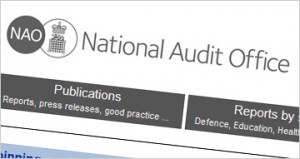BBC Independence and the NAO
Posted by Professor Richard Sambrook
Here’s an article I wrote for The Media Guardian on why unfettered access by the National Audit Office theatens the BBC’s independence.

This government may be about to politicise the BBC to a greater extent than any of its predecessors. Traditionally, governments of all colours have protected its independence, recognising, whatever their differences with the organisation, that it is the source of the BBC’s credibility and international standing.
Now, in the wake of the public accounts committee’s roasting of BBC executives, the culture secretary Maria Miller has indicated she wants the National Audit Office to have greater and immediate access to the BBC.
It’s not a new ambition. The coalition agreement stated: “We will maintain the independence of the BBC, and give the NAO full access to the BBC’s accounts to ensure transparency.” That has happened – by agreement. There is a programme of audits – but agreed in advance with the BBC Trust. It’s one of those very British accommodations to reconcile the conflicting needs for independence and scrutiny. Just as BBC executives appear before select committees voluntarily – because under its charter the BBC is not accountable to parliament.
In her speech to TV executives in Cambridge, Miller suggested the niceties are over. “I want a system where the NAO can look at any area of concern without hindrance or delay,” she said, knowing that after the PAC performance the BBC is on weak ground. And here’s where the danger lies.
The BBC’s director of strategy, James Purnell – a former culture secretary himself – was quick to pick up on the significance. “We do have to be careful we don’t create a problem in terms of the BBC’s independence,” he told the RTS convention, adding that BBC journalists “should be able to be incredibly tough on politicians and people in power without having to look over their shoulder”.
The worry is that a disgruntled MP might demand some immediate review of the BBC in retaliation for difficult questions being asked on Newsnight or Today – and the BBC would be powerless to resist. Or a competitor could raise questions for an MP to pursue in aid of its commercial advantage. A Daily Mail story on the number of staff sent to cover the World Cup, for example, might prompt calls for a hard look at value for money – surely commentators could do both radio and TV? If other broadcasters manage with one morning presenter, is that awkward one on the Today programme really necessary? Hard to imagine? No, not really. (As director of BBC News a decade ago my conversations with MPs too often concentrated on why BBC journalists couldn’t be just a bit more constructive.) Critics will say the NAO has reviewed the World Service for years without undermining its independence. But the World Service has very little purchase on UK politics.
It’s also not at all clear that experience of Whitehall procurement is the best background for assessing the value of Strictly Come Dancing, the creative risk behind investment in new drama or the appropriate cost per hour of Radio 3. Operational budgets and editorial content are umbilically linked. You can’t review one without questioning the other.
These fears aren’t theoretical and these tensions aren’t unique to the UK. In Italy, Silvio Berlusconi tried to cap RAI salaries and suggested end credits should indicate programme costs. In Spain, the government introduced a cap limiting RTVE’s sports rights.
In Greece, in 2012 when ERT outbid a commercial competitor for TV rights to the Champions League, the rightwing government launched a judicial enquiry and pursued former ERT managers for wasting public money.
In Eastern and Southern Europe, every new government puts political pressure on national broadcasters by challenging finances and engineering a change of management.
Unhindered access to BBC accounts by the NAO is not just about transparency. Whatever assurances politicians may give, it is a Trojan horse which will allow them to meddle in the BBC’s nerve centre.
Newspaper editors should pause before rubbing their hands in glee. If the government can push the boundaries of interference under this guise of transparency and accountability, what hope for a truly independent post-Leveson settlement?”
UPDATE: it seems The Daily Mail agrees with me
